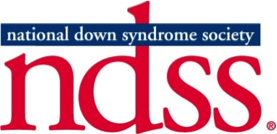Justice for Abelardo Arboleda Ortiz in Final Days of a Presidency
By Shira Wakschlag | Director, Legal Advocacy & Associate General Counsel for The Arc
The Arc is thrilled to announce that President Obama has commuted the sentence of Abelardo Arboleda Ortiz—an individual with intellectual disability—from death to life in prison without the possibility of parole.
The Arc has been involved in this case for years, having filed two amicus briefs in support of Mr. Ortiz, the first in 2010 in support of his appeal before the Eighth Circuit Court of Appeals and the second in 2015 in support of his petition for writ of certiorari (request for review of the lower court’s decision) before the United States Supreme Court. Most recently, in December 2016, The Arc submitted a clemency letter to President Obama requesting the commutation of Mr. Ortiz’s sentence.
In the brief before the U.S. Supreme Court, The Arc argued that:
In implementing this Court’s decisions in Atkins and Hall, both judges and clinicians must carefully evaluate whether a defendant satisfies the clinical definition of intellectual disability according to the consensus of the scientific community…In finding that Mr. Ortiz is not an individual with intellectual disability, the district court mistakenly relied on irrelevant testimony regarding Mr. Ortiz’s adaptive strengths rather than relevant testimony regarding his adaptive deficits, thereby rejecting the scientific community’s well-established guidelines governing intellectual disability. Broad acceptance of the district court’s mistaken reasoning would deprive individuals with intellectual disability of the protections and supports to which they are entitled under state and federal law and the U.S. Constitution.
This is a major victory in protecting the rights of individuals with intellectual disability in the criminal justice system and in fulfilling the promise of Hall v. Florida and Atkins v. Virginia. In Atkins, the U.S. Supreme Court recognized the special risk of wrongful execution faced by persons with intellectual disability and banned their execution as cruel and unusual punishment under the Eighth Amendment. In its more recent 2014 Hall decision, the Court reinforced its earlier decision that people with intellectual disability not be executed, requiring that consideration of evidence beyond IQ tests be taken into account when determining intellectual disability. While the Court’s prohibition of the execution of defendants with intellectual disability could not be clearer, many states continue to define intellectual disability in a manner that significantly deviates from clinical standards, resulting in inconsistent application of Hall and Atkins and a miscarriage of justice for many defendants.
The Arc has deep sympathy for the family and friends of the victim in this case, and we support appropriate punishment of all responsible parties. The Arc does not seek to eliminate punishment of Mr. Ortiz or others with disabilities, but rather, to ensure that justice is served and the rights of all parties are protected. The Arc is committed to seeking lawful outcomes for people with intellectual disability and will continue working to ensure that the U.S. Supreme Court rulings on this issue are abided by in jurisdictions across the country.
Learn more about The Arc’s legal advocacy work on behalf of people with intellectual and developmental disabilities.










